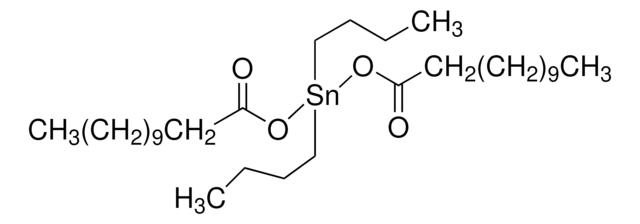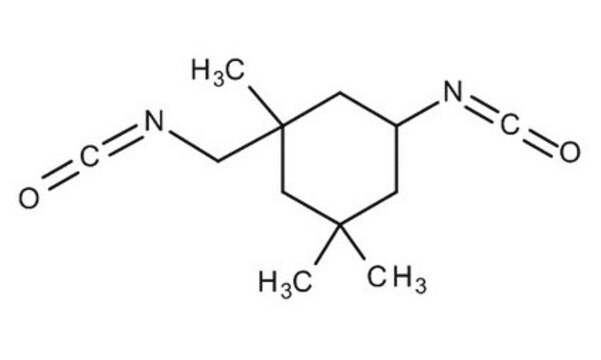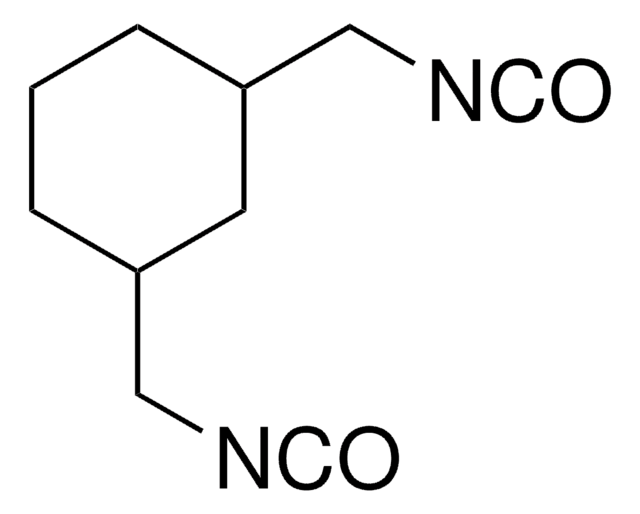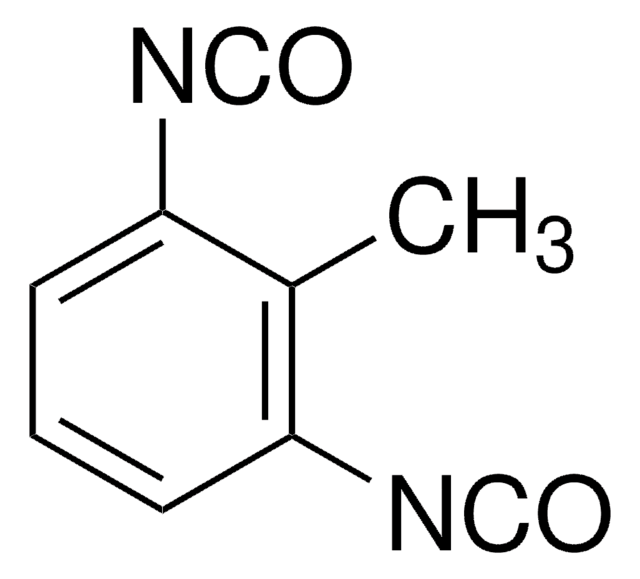317624
Isophorone diisocyanate
98%, mixture of isomers
Synonym(s):
5-Isocyanato-1-(isocyanatomethyl)-1,3,3-trimethylcyclohexane
About This Item
Recommended Products
Quality Level
Assay
98%
form
liquid
refractive index
n20/D 1.484 (lit.)
bp
158-159 °C/15 mmHg (lit.)
density
1.049 g/mL at 25 °C (lit.)
SMILES string
CC1(C)CC(CC(C)(CN=C=O)C1)N=C=O
InChI
1S/C12H18N2O2/c1-11(2)4-10(14-9-16)5-12(3,6-11)7-13-8-15/h10H,4-7H2,1-3H3
InChI key
NIMLQBUJDJZYEJ-UHFFFAOYSA-N
Looking for similar products? Visit Product Comparison Guide
General description
Application
- Production of polyurethane coatings for automotive and industrial applications.
- Synthesis of polyurethane elastomers used in medical devices and sports equipment.
- Production of polyurethane foams used in upholstery, insulation, and packaging applications.
- Use in the manufacture of adhesives, sealants, and binders.
- In the synthesis of bridged silsesquioxane(BSQ) by sol-gel polycondensation with 3-aminopropyltriethoxysilane. The polymer of BSQ can be used to prepare the moisture-resistant film for UV filters.
- As a healing agent in the preparation of polyurethane microcapsules by interfacial polymerization.
- As a monomer in the synthesis of highly monodispersed polyurea microspheres via precipitation polymerization.
Signal Word
Danger
Hazard Statements
Precautionary Statements
Hazard Classifications
Acute Tox. 1 Inhalation - Aquatic Chronic 2 - Eye Irrit. 2 - Resp. Sens. 1 - Skin Irrit. 2 - Skin Sens. 1 - STOT SE 3
Target Organs
Respiratory system
Storage Class Code
6.1A - Combustible acute toxic Cat. 1 and 2 / very toxic hazardous materials
WGK
WGK 2
Flash Point(F)
325.4 °F - closed cup
Flash Point(C)
163 °C - closed cup
Personal Protective Equipment
Choose from one of the most recent versions:
Already Own This Product?
Find documentation for the products that you have recently purchased in the Document Library.
Customers Also Viewed
Protocols
HPLC Analysis of Isocyanates on Titan™ C18
Our team of scientists has experience in all areas of research including Life Science, Material Science, Chemical Synthesis, Chromatography, Analytical and many others.
Contact Technical Service












